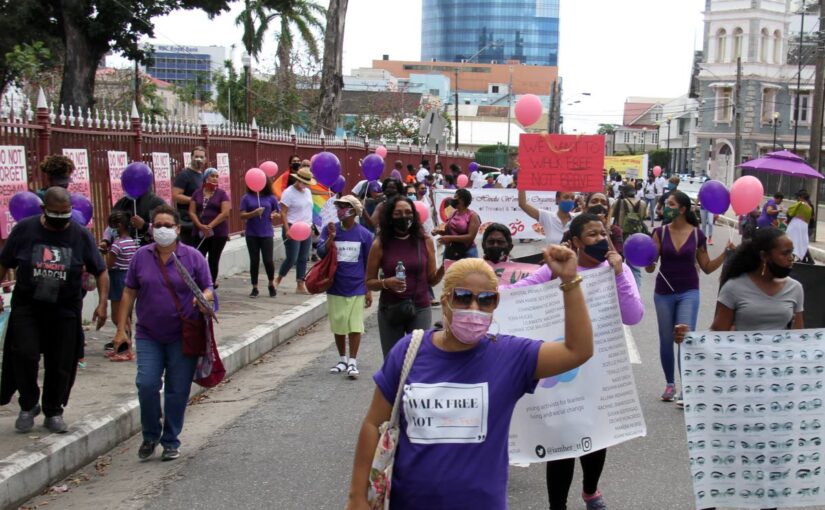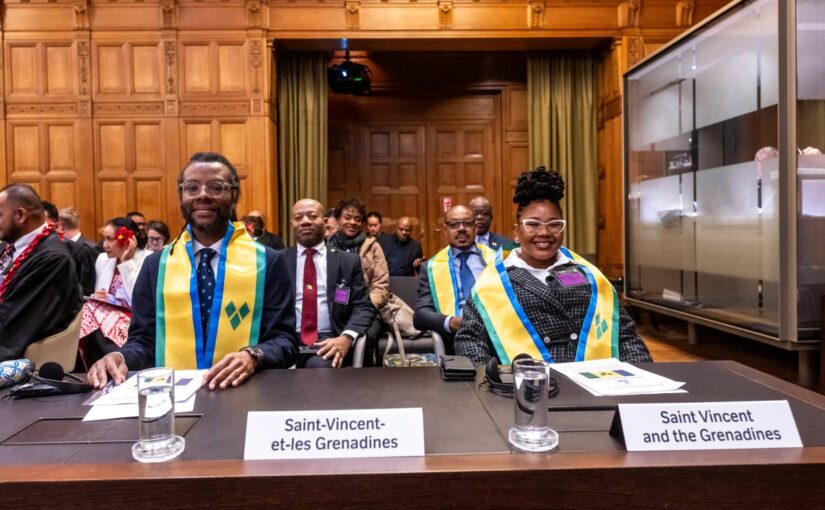The United Nations Assistance Mission in Afghanistan (UNAMA) recently released a comprehensive report detailing the human rights situation in...
Vous n'êtes pas connecté
- English
- Français
- عربي
- Español
- Deutsch
- Português
- русский язык
- Català
- Italiano
- Nederlands, Vlaams
- Norsk
- فارسی
- বাংলা
- اردو
- Azərbaycan dili
- Bahasa Indonesia
- Հայերեն
- Ελληνικά
- Bosanski jezik
- українська мова
- Íslenska
- Türkmen, Түркмен
- Türkçe
- Shqip
- Eesti keel
- magyar
- Қазақ тілі
- Kalaallisut ; kalaallit oqaasii
- Lietuvių kalba
- Latviešu valoda
- македонски јазик
- Монгол
- Bahasa Melayu ; بهاس ملايو
- ဗမာစာ
- Slovenščina
- тоҷикӣ ; toğikī ; تاجیکی
- ไทย
- O'zbek ; Ўзбек ; أۇزبېك
- Tiếng Việt
- ភាសាខ្មែរ
- རྫོང་ཁ
- Soomaaliga ; af Soomaali
Rubriques :
 Maroc - NEWSDAY.CO.TT - A la Une - Hier 09:40
Maroc - NEWSDAY.CO.TT - A la Une - Hier 09:40
Role of women in peace-keeping
FARIHAH MOHAMMED IN A WORLD where conflicts persist and human rights abuses continue to claim innocent lives, women have consistently emerged as fierce advocates for justice, peace and the end of genocides. Whether on the frontlines of diplomatic efforts or within local communities, women’s voices are powerful catalysts for change. Yet, despite their leadership, they are often silenced and excluded, particularly in male-dominated spaces. In TT and globally, women are calling for an end to genocide, especially in areas where their communities are under threat. They have been at the forefront of advocating for peace in Gaza, Myanmar and parts of Africa, tirelessly pushing for international intervention, dialogue, and the protection of human rights. However, within certain communities in TT, such as the Muslim community, women’s voices are marginalised. The loudest and most heard voices in these spaces are often those of men, many of whom lack expertise in international law, geopolitics or human rights advocacy. These voices tend to dominate discussions, stifling the urgent calls for peace and the end of genocide that many women are championing. The absence of women in these discussions is not only a loss for the cause of peace, but also an insult to the wisdom and expertise they bring. Women, particularly those who have lived through conflict, understand the devastating toll war takes on families and communities. They know the deep scars left by violence, displacement, and loss. Yet, their perspectives are often dismissed, and their calls for diplomatic resolutions go unheard as louder, more aggressive voices dominate the conversation. Despite these challenges, women remain resolute. From grassroots activism to global advocacy, women are pushing for a shift in how we respond to genocide and war. Their focus on diplomacy, dialogue and the rule of law offers a stark contrast to the militaristic rhetoric often employed by male-dominated factions. Women in refugee camps, local advocacy organisations and international bodies are fighting for peace with unparalleled resilience and vision. In TT, women are working within their communities to shift narratives, educate and call for justice. They are utilising platforms in media, social justice organisations and political spaces to advocate for an end to violence and the upholding of international law, not for political gain, but for the well-being of all people. Unfortunately, their struggle is compounded by the patriarchal nature of many local and international discussions. Men dominate conversations on issues like the Gaza genocide and global conflicts, often pushing the discourse in directions that neglect the essential role of women in peace-building. Women’s rights and their role in diplomacy are often sidelined, despite evidence that countries with women involved in peace processes are more likely to achieve lasting peace. It is crucial that we create spaces for women’s voices to be heard, not only in discussions on genocide, but in all aspects of global diplomacy. Women are not just victims; they are key players in crafting sustainable solutions. Their insights into humanitarian law, conflict resolution and the psychological impact of violence are invaluable assets in the pursuit of peace. The world must recognise and amplify the voices of women in advocating for an end to genocide. We must not allow patriarchal structures to dictate the future of peace and justice. In TT and worldwide, women’s calls for an end to violence are not only worthy of being heard – they are essential to shaping a more just, peaceful future. The post Role of women in peace-keeping appeared first on Trinidad and Tobago Newsday.
Articles similaires
Educational Inequality Of Women: Causes And Consequences – OpEd
Educational inequality among women is a critical issue with deep societal, cultural, and economic implications. It manifests in various ways,...
Trump’s Ukraine Plan – Analysis
The Russian-Ukrainian war, which began with the annexation of Crimea in 2014 and escalated into a full-scale conflict in 2022, has caused immense...
Afghanistan’s Media Landscape: Stifled, Silenced, And Suppressed – OpEd
Since the Taliban regained power in 2021, Afghanistan's media landscape has undergone drastic changes, marked by severe restrictions on press...
Generation Hope: Kashmir’s Youth Forging Paths To Peace Amidst Challenges – OpEd
Viewing Kashmiri society through the lens of peace and conflict studies, it can be argued that conflict management though has been an ongoing process...
Do Not Allow Execution of Freedom Fighters In Iran’s ‘Saydnaya’ To Take Place In Deafening Silence – OpEd
The fall of the Syrian dictator and the subsequent opening of Syria’s prisons by the country’s freedom fighters revealed the horrific crimes...
In With The Old For Taiwan’s ‘New Era’ Of Values-Based Diplomacy – Analysis
By Hiro Fu Ahead of his inaugural overseas visit to Pacific allies — the Marshall Islands, Tuvalu and Palau — Taiwanese President Lai Ching-te...
Small islands, big voices – Caribbean voices unite at historic ICJ climate change hearings
A total of ten Caribbean countries highlighted the often devastating and deadly effects climate change has on the region at the International Court...
Abuja: Despite internal crisis, Manyu Women still cling to Nyene Mawn
Across Manyu Division and in all Manyu diaspora communities, Nyene Mawn, the Manyu Women’s International Association are holding end of year...
Rothbard’s Theory Of International Relations And The State – OpEd
By Ryan McMaken Murray Rothbard is well known as an opponent of warfare perpetrated by states. This includes acts of war by states against other...
Les derniers communiqués
-
Aucun élément

